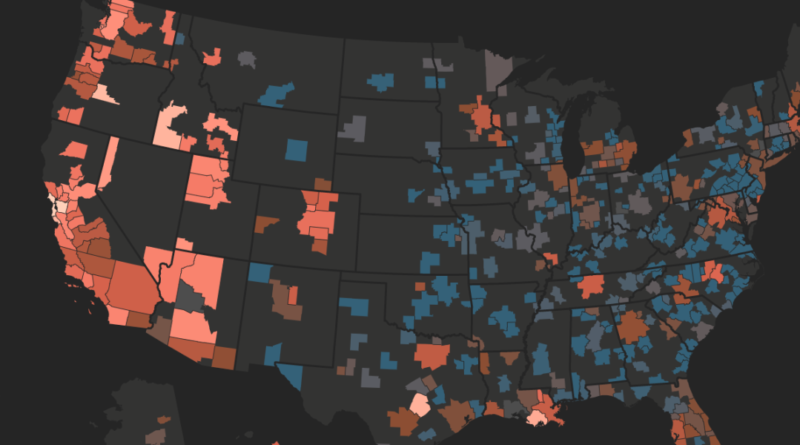The housing market correction has already caused homeowners to lose $2.3 trillion
For 124 consecutive months, spanning the bottom of the housing crash in February 2012 through the top of the Pandemic Housing Boom in June 2022, U.S. home prices posted positive month-over-month growth. That streak, of course, came to an abrupt end last year as the Fed’s inflation-fight set off a correction in home prices.
On one hand, since their peak, national home prices have only fallen by a few percentage points through November, according to the seasonally adjusted Case-Shiller National Home Price Index. On the other hand, the ongoing housing correction is already starting to have a financial, and psychological, impact on homeowners.
On Wednesday, Redfin published a report finding that the total value of U.S. homes has fallen $2.3 trillion since the start of the home price correction.
“The total value of U.S. homes was $45.3 trillion at the end of 2022, down 4.9% ($2.3 trillion) from a record high of $47.7 trillion in June. That’s the largest June-to-December drop in percentage terms since 2008,” writes Redfin researchers.
Let’s be clear: While there’s certainly a home price correction rolling through many markets nationwide, most homeowners are still up big-time since the pandemic’s onset.
“The housing market has shed some of its value, but most homeowners will still reap big rewards from the Pandemic Housing Boom,” Redfin researchers said in the report. “The total value of U.S. homes remains roughly $13 trillion higher than it was in February 2020, the month before the coronavirus was declared a pandemic.”
Is this home price correction almost over? It depends on who you ask.
Among the 29 major real estate forecasters, six firms think national home prices will either rise or remain flat in 2023. Meanwhile, 23 major real estate forecasters think national home prices will fall further this year.
Fed officials have acknowledged that they’re paying close attention to the correction.
On Wednesday, minutes released from the recent FOMC meeting showed that Federal Reserve officials believe “valuations in both residential and commercial property markets remained high” and “that the potential for large declines in property prices remained greater than usual.”
Whenever a group like Redfin says “U.S. home prices”, it means a national aggregate. On a regional level, this home price correction (or lack thereof) continues to vary.
Among the country’s 400 largest housing markets tracked by Zillow, 276 have seen local home prices fall from their seasonally adjusted 2022 peak. Another 124 markets remain at their 2022 peak price.
The markets with the biggest declines, including places like Bend, Ore. (down 9.2%) and Phoenix (down 6.3%), are disproportionately located across the Pacific Coast and Southwest.
Heading forward, Goldman Sachs expects this West and East divide to continue.
“On a regional basis, we project larger declines across the Pacific Coast and Southwest regions—which have seen the largest increases in inventory on average—and more modest declines across the Mid-Atlantic and Midwest—which have maintained greater affordability over the past couple years,” wrote Goldman Sachs in a recent report.
Want to stay updated on the housing correction? Follow me on Twitter at @NewsLambert.
Learn how to navigate and strengthen trust in your business with The Trust Factor, a weekly newsletter examining what leaders need to succeed. Sign up here.



